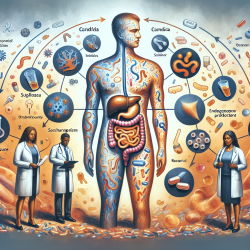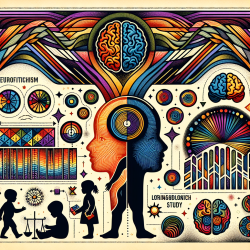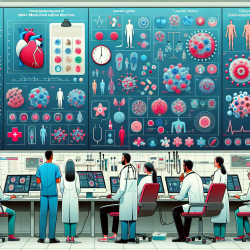Introduction
In the quest for improved therapeutic outcomes, understanding the complex interplay between various medical conditions is crucial. One such intriguing connection is between Auto-Brewery Syndrome (ABS) and Diabetes Mellitus (DM). The recent literature review titled "The Associations of Auto-Brewery Syndrome and Diabetes Mellitus: A Literature Review and Clinical Perspective" sheds light on this rare but significant association. This blog aims to provide practitioners with insights from this research, encouraging them to refine their clinical skills and explore further research opportunities.
Understanding Auto-Brewery Syndrome
Auto-Brewery Syndrome is a rare condition where endogenous alcohol is produced within the body, leading to symptoms similar to alcohol intoxication without alcohol consumption. The primary culprits are intestinal microflora, particularly Candida and Saccharomyces species, which ferment ingested carbohydrates into ethanol.
In individuals with DM, elevated blood glucose levels create a favorable environment for these microorganisms, potentially increasing the risk of ABS. This connection highlights the importance of considering ABS in diabetic patients presenting with unexplained symptoms of intoxication.
Clinical Implications for Practitioners
For practitioners, understanding the association between ABS and DM is crucial for several reasons:
- Diagnostic Awareness: Recognizing ABS as a potential differential diagnosis in diabetic patients with unexplained intoxication symptoms can prevent misdiagnosis and inappropriate treatment.
- Comprehensive Assessment: Incorporating assessments for ABS in diabetic patients, particularly those with obesity or gastrointestinal issues, can lead to more accurate diagnoses.
- Holistic Management: Addressing gut health and microbiota balance through dietary modifications and probiotics may help manage ABS symptoms in diabetic patients.
Encouraging Further Research
The current research provides a foundation, but there is a need for further studies to explore the precise mechanisms linking ABS and DM. Practitioners are encouraged to engage in research that delves into:
- The role of specific gut microbiota in ABS development among diabetic patients.
- The impact of dietary interventions on reducing ABS symptoms in DM.
- Longitudinal studies to establish the prevalence and risk factors of ABS in diabetic populations.
Conclusion
By integrating the findings from this research into clinical practice, practitioners can enhance their diagnostic acumen and therapeutic strategies, ultimately leading to better patient outcomes. The intersection of ABS and DM is a promising area for further exploration, offering opportunities to improve patient care and advance medical knowledge.
To read the original research paper, please follow this link: The Associations of Auto-Brewery Syndrome and Diabetes Mellitus: A Literature Review and Clinical Perspective.










